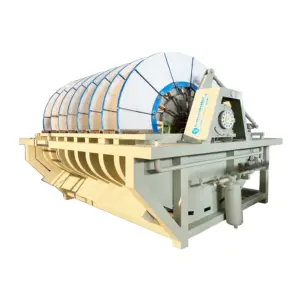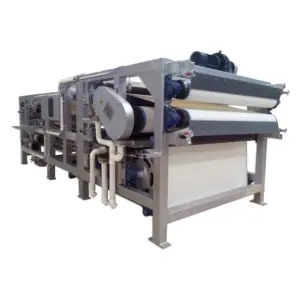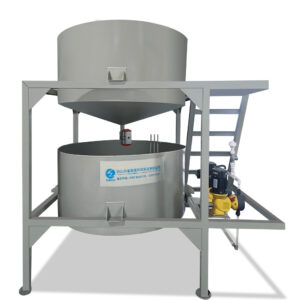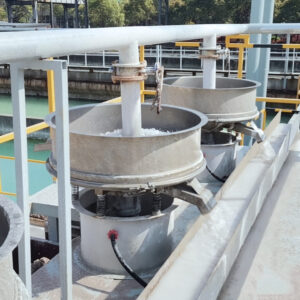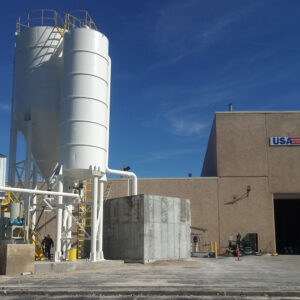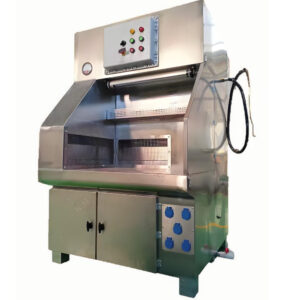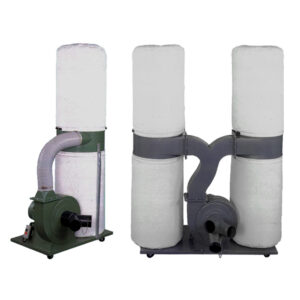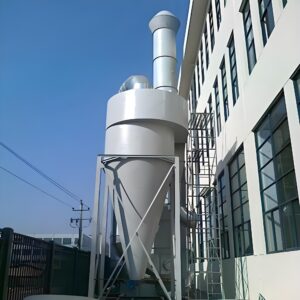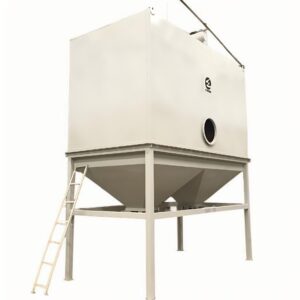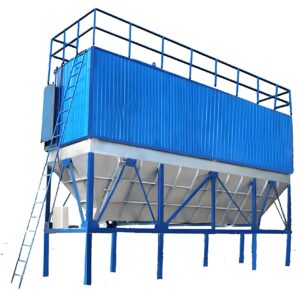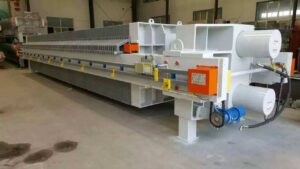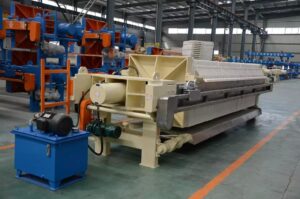Dust collector suppliers serve as the critical link between industrial facilities and clean air compliance. These specialized vendors design, manufacture, and support air pollution control systems that capture and filter airborne particulates from manufacturing processes. PORVOO Clean Tech represents this category of suppliers, offering comprehensive dust collection solutions tailored to industrial applications.
The supplier landscape encompasses everything from equipment-only providers to full-service partners offering design, installation, and ongoing maintenance support. Understanding this distinction is crucial because your choice directly impacts system performance, operational costs, and long-term reliability.
Types of Industrial Dust Collection Equipment
Modern dust collection systems fall into several distinct categories, each optimized for specific applications and particle types. Baghouse collectors dominate heavy industrial applications, utilizing fabric filter bags to capture particles as small as 0.1 microns with efficiency rates exceeding 99.9%. These systems excel in cement plants, steel mills, and power generation facilities where high-volume particulate capture is essential.
Cartridge collectors offer compact solutions for smaller operations, featuring pleated filter media that provides excellent surface area in limited space. Cyclone separators handle larger particles through centrifugal force, often serving as pre-collectors in multi-stage systems.
| Equipment Type | Particle Size Range | Efficiency | Typical Applications |
|---|---|---|---|
| Baghouse | 0.1-100+ microns | 99.9%+ | Heavy manufacturing, cement, steel |
| Cartridge | 0.3-50 microns | 95-99% | Welding, grinding, pharmaceutical |
| Cyclone | 5-200 microns | 80-95% | Woodworking, agriculture, pre-filtering |
Key Industries Requiring Dust Collection Solutions
Manufacturing sectors drive the majority of dust collection demand, with metalworking operations generating particularly challenging particulate loads. Welding and cutting processes produce fine metallic particles that require specialized filtration approaches, while grinding operations create mixed-size particle distributions demanding multi-stage collection systems.
The pharmaceutical and food processing industries present unique challenges, requiring systems that meet strict contamination control standards while maintaining product quality. These applications often demand stainless steel construction, sanitary design features, and explosion-proof ratings for combustible dust handling.
How to Identify Reliable Dust Collection Suppliers?
Supplier reliability extends far beyond equipment quality—it encompasses technical expertise, financial stability, and long-term service commitment. The most reliable vendors demonstrate consistent performance across multiple installations, backed by verifiable references and documented case studies.
Financial stability indicators include established market presence, diversified customer base, and transparent pricing structures. Companies operating for over a decade with steady growth patterns typically offer greater assurance of ongoing support availability.
Essential Certification and Compliance Standards
Third-party certifications provide objective validation of supplier capabilities and equipment performance. Look for vendors holding ISO 9001 quality management certification, which demonstrates systematic quality control processes throughout design and manufacturing operations.
ASME certification becomes critical for pressure vessel applications, particularly in high-temperature industrial processes. The American Welding Society (AWS) certification ensures proper fabrication techniques for structural components and ductwork systems.
“Certification isn’t just paperwork—it’s proof that a supplier follows documented processes that directly impact system reliability and safety,” notes Dr. Sarah Chen, industrial air quality researcher at Penn State University.
Technical Expertise and Engineering Capabilities
Top-tier suppliers maintain in-house engineering teams capable of custom system design and computational fluid dynamics modeling. This capability enables proper sizing calculations, airflow optimization, and performance predictions that directly impact operational efficiency.
Ask potential vendors about their design tools and modeling capabilities. Advanced suppliers utilize CFD software to simulate particle behavior and optimize collection efficiency before manufacturing begins. This engineering investment typically results in systems that meet or exceed performance specifications while minimizing pressure drop and energy consumption.
What Should You Consider When Comparing Baghouse Suppliers?
Baghouse systems represent significant capital investments, often ranging from $50,000 for small industrial units to over $2 million for large-scale installations. This investment level demands thorough supplier comparison focusing on performance guarantees, construction quality, and total cost of ownership.
Performance specifications should include guaranteed efficiency ratings, pressure drop values, and filter media life expectancy. Reputable suppliers provide written performance guarantees backed by penalty clauses for underperformance—a practice that demonstrates confidence in their engineering capabilities.
Performance Specifications and Efficiency Ratings
Efficiency ratings alone don’t tell the complete performance story. Examine the test conditions used for efficiency measurements, including particle size distribution, gas temperature, and humidity levels. Some suppliers quote efficiency based on ideal laboratory conditions that don’t reflect real-world operating environments.
Air-to-cloth ratio specifications indicate how aggressively the system operates. Lower ratios (under 3:1) typically provide longer filter life and more stable pressure drop, while higher ratios (over 6:1) reduce equipment size but may increase maintenance requirements.
| Performance Parameter | Conservative Design | Aggressive Design | Impact |
|---|---|---|---|
| Air-to-Cloth Ratio | 2-3:1 | 5-7:1 | Filter life, pressure stability |
| Face Velocity | 3-4 ft/min | 6-8 ft/min | Cleaning effectiveness |
| Filter Media | PTFE membrane | Standard felt | Efficiency, chemical resistance |
Customization and Application-Specific Solutions
Standard catalog equipment rarely optimizes performance for specific applications. The best suppliers offer extensive customization options, including specialized filter media, custom hopper designs, and application-specific control systems.
Explosion protection represents a critical customization area for combustible dust applications. Suppliers should demonstrate experience with NFPA 68 explosion venting design and Kst testing for dust explosibility characterization.
Which Industrial Dust Collector Manufacturers Lead the Market?
The global dust collection market features several tiers of manufacturers, each serving different market segments and application requirements. Understanding these tiers helps align your selection process with appropriate supplier categories for your specific needs.
Tier-one manufacturers typically focus on large-scale industrial applications, offering comprehensive engineering services and global support networks. These companies often maintain regional manufacturing facilities and extensive spare parts inventories.
Global Market Leaders and Their Specializations
Major manufacturers have developed specialization areas based on decades of application experience. Some excel in high-temperature applications for steel and aluminum processing, while others dominate pharmaceutical and food processing markets with sanitary design expertise.
Market research from the Industrial Air Filtration Association indicates that the top 10 suppliers control approximately 60% of global market share, with the remainder distributed among hundreds of smaller regional suppliers. This concentration suggests that major suppliers offer proven reliability but may lack the flexibility of smaller specialists.
Regional Suppliers and Niche Specialists
Regional suppliers often provide advantages in service response time and application-specific expertise. Many specialize in particular industries or geographic regions, developing deep understanding of local regulations and operating conditions.
In our experience working with diverse suppliers, regional specialists frequently offer more competitive pricing for standard applications while providing faster service response. However, they may lack the engineering resources for complex custom applications or global support requirements.
Companies seeking comprehensive dust collection solutions should evaluate both global and regional options to identify the optimal balance of capability and cost-effectiveness.
How to Evaluate Dust Collection Equipment Suppliers’ Service Quality?
Service quality often determines long-term satisfaction more than initial equipment performance. Exceptional suppliers provide comprehensive support throughout the system lifecycle, from initial design consultation through decades of ongoing operation.
Response time metrics provide objective service quality indicators. Top suppliers typically guarantee 24-hour response for emergency service calls and maintain regional service centers with trained technicians and common spare parts inventory.
Installation and Commissioning Support
Professional installation services ensure systems achieve design performance specifications from day one. Qualified suppliers provide detailed installation supervision, including alignment verification, electrical connections, and initial startup procedures.
Commissioning services should include performance testing to verify compliance with specified parameters. This testing often reveals issues that can be corrected during the warranty period rather than becoming ongoing operational problems.
A midwest manufacturing facility recently experienced a 15% improvement in collection efficiency after their supplier’s commissioning team identified and corrected ductwork flow imbalances that standard installation crews had missed.
Maintenance Programs and Spare Parts Availability
Preventive maintenance programs significantly extend equipment life and maintain optimal performance. Look for suppliers offering structured maintenance contracts with scheduled inspections, filter change services, and performance monitoring.
Spare parts availability becomes critical for minimizing downtime during repairs. The best suppliers maintain regional warehouses stocked with common replacement parts and offer overnight shipping for emergency situations.
| Service Level | Response Time | Parts Availability | Maintenance Options |
|---|---|---|---|
| Premium | 4-8 hours | Regional inventory | Full service contracts |
| Standard | 24-48 hours | Factory stock | Scheduled maintenance |
| Basic | 3-5 days | Order-based | Emergency only |
What Are the Cost Considerations for Dust Collection Systems?
Total cost of ownership extends far beyond initial equipment purchase price. Energy consumption, filter replacement costs, and maintenance expenses often exceed the initial investment over a system’s 15-20 year operational life.
Energy costs typically represent 40-60% of total ownership costs for continuously operating systems. This makes pressure drop optimization and efficient fan selection critical factors in supplier evaluation.
Initial Investment vs. Long-term Operating Costs
While lower initial costs appear attractive, they often result in higher operating expenses through increased energy consumption, shorter filter life, or higher maintenance requirements. The most cost-effective approach balances initial investment with optimized operating efficiency.
Filter media selection significantly impacts long-term costs. Premium PTFE membrane filters may cost 2-3 times more initially but often provide 3-5 times longer service life, resulting in lower total filtration costs.
ROI Analysis and Payback Periods
Energy-efficient systems typically achieve payback periods of 2-4 years through reduced power consumption and extended filter life. Additional benefits include improved production uptime, reduced regulatory compliance costs, and enhanced worker safety.
A recent case study from a cement plant showed that upgrading to a high-efficiency baghouse system reduced annual operating costs by $180,000 while improving emissions compliance margins by 40%.
Advanced industrial air pollution control systems continue evolving with smart monitoring capabilities, predictive maintenance features, and improved filter media technologies that further enhance long-term value.
Selecting the right dust collector supplier requires balancing technical capabilities, service quality, and total cost considerations while ensuring long-term reliability and regulatory compliance. The most successful installations result from partnerships with suppliers who demonstrate proven expertise in your specific application area, backed by comprehensive service support and competitive total ownership costs.
Take time to thoroughly evaluate multiple suppliers, request detailed proposals with performance guarantees, and check references from similar applications. The investment in proper supplier selection pays dividends through years of reliable operation and optimal air quality protection.
Frequently Asked Questions
Q: What are the essential factors to consider when selecting the best dust collector suppliers?
A: When selecting the best dust collector suppliers, it’s crucial to consider factors like experience and expertise in your industry, engineering support, certifications for safety and performance, and reliable aftermarket service. Ensure that the supplier can provide site assessments, compliant designs, and maintenance plans to optimize your dust collection system.
Q: How do I identify a reputable dust collector supplier?
A: Identifying a reputable dust collector supplier involves checking their track record, customer testimonials, and independent reviews. Look for suppliers who offer comprehensive engineering support, including site surveys and compliance consulting. They should also provide a written guarantee of filtration efficiency and be available as trusted advisors for system design and installation needs.
Q: What types of dust collectors do the best suppliers offer?
A: The best dust collector suppliers typically offer a variety of systems, including baghouse, cartridge, wet, cyclone, and ESP (Electrostatic Precipitator) models. They should also provide customization options to fit specific industrial needs. Additionally, they might offer specialized features like advanced filter cleaning technologies.
Q: What are the benefits of partnering with experienced dust collector suppliers?
A: Partnering with experienced dust collector suppliers offers several benefits:
- Application-Specific Solutions: They provide tailored systems that meet your industry’s unique requirements.
- Regulatory Compliance: They ensure that your dust collection system complies with safety regulations, such as OSHA and NFPA standards.
- Improved Efficiency: They help optimize system performance, reducing operational costs and improving air quality.
- Reliable Support: They offer ongoing maintenance and technical support to extend the life of your equipment.
Q: How do I compare different dust collector suppliers effectively?
A: To compare different dust collector suppliers effectively, use a structured approach:
- Experience and Expertise: Look at their history and specialization in your industry.
- Product Range: Evaluate the variety of dust collectors they offer.
- Customer Support: Assess their aftermarket service and technical support options.
- Reviews and Testimonials: Check customer satisfaction through reviews and case studies.
- Certifications and Compliance: Verify their certifications for safety and performance standards.
External Resources
- Dust Collector Manufacturers, Suppliers and Distributors – A comprehensive directory organized by state, enabling easy comparison of dust collector suppliers and distributors for informed vendor selection.
- Dust Collector Manufacturers and Suppliers – IQS Directory – Features a detailed list of dust collector manufacturers, along with company profiles, reviews, and a quote request tool to assist in selecting the best supplier.
- Industrial Dust Collector Manufacturers – IQS Directory – Offers an index of leading industrial dust collector manufacturers, including company descriptions, product information, and customer reviews for effective vendor comparison.
- Industrial Dust Collector Manufacturers Suppliers – Provides a vendor directory with information on product offerings and manufacturing capabilities to help users compare and select dust collector suppliers.
- 12 Dust Collection System Manufacturers in 2025 – Metoree – Lists top-rated dust collection system manufacturers, describing their core products, services, and technical strengths for vendor research purposes.
- Baghouse.com – Industrial Dust Collectors and Fume Control – Focuses on baghouse dust collection solutions, vendor comparisons, and technical buying guides to support effective supplier selection.
